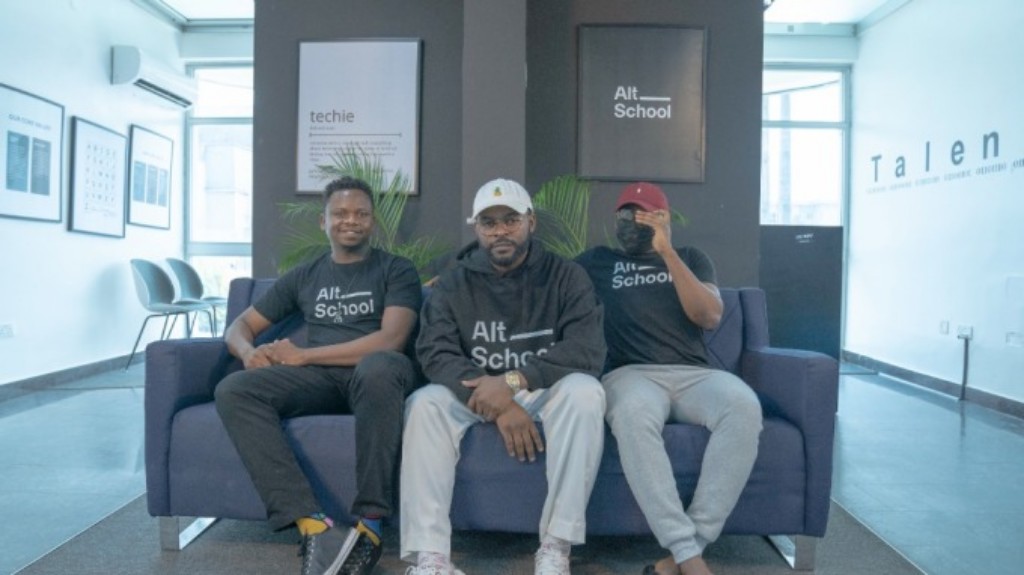A report from the International Finance Corporation (IFC) and Google last year estimated that there are currently some 700,000 professional developers across Africa and half of them are concentrated in countries like Egypt, Kenya, Morocco, Nigeria, and South Africa. Interestingly, this number is disputed in some quarters and expected to be lower.
Globally, according to the State of the Developer Nation report, as of 2021, there are 26.8 million active software developers in the world. And experts predict that this number will grow to reach 45 million by 2030. Africa, like every other region in the world, is looking to increase the number of software developers in its region. It is no longer news that Africa’s tech talent, from mid to senior level, are being poached by global companies, with many seeking better pay and perks as well as the global recognition that comes with working for companies outside of the continent.
Founded by Adewale Yusuf, Akintunde Sultan and Opeyemi Awoyemi, AltSchool Africa has raised $1 million in pre-seed funding to scale its effort to solve Africa’s talent problem and become an entry point for young Nigerians into tech.
But this isn’t the first time a company have tried to become an entry point for young Nigerians into tech. Nigerian startup Andela was founded in 2014 to solve Africa’s talent problem by training developers and placing them in global companies. Andela’s programme was free and its developers were on a payroll. Unfortunately, in 2019, Andela—now a unicorn worth over $1.5 billion—started experiencing difficulty finding work for the junior developers it had trained. Their model wasn’t profitable mainly because tech companies around the world needed more experienced developers—mid to senior level. After laying off at least 500 junior developers, Andela switched its model to now focus on placing senior developers in international companies.
AltSchool, however, understands that Africa’s talent deficit cannot be filled without junior developers, so unlike Andela, it is focused on training junior to mid-level developers. Usually, university graduates for 4 to 5years before transitioning into tech, but AltSchool is trying to reduce that transition time to 1 year.
Alongside AltSchool, the team will scale its sister company TalentQL, in launching products like Pipeline, which trains mid-level engineers, turns them into senior engineers, and gets them placements in global companies.
AltSchool will operate as a free online school (although the application fee is $24 or ₦10,000) where students will receive training in software development and a diploma certificate at the end of their programme—9 months after commencement. AltSchool also promises to make space for participants without a laptop by providing the device for them via soft loans. Although AltSchool will not be placing its students under a payroll, as Andela did, it will, at the end of their programme, make provision for a 3-month internship that will make the newly-minted junior developers more employable.
As for tuition for the programme, participants will be required to pay a percentage of their salary to AltSchool over an agreed period of time—a model pioneered by American BloomTech, formerly known as Lambda School.
With 60% of Nigeria’s 200 million population under 25, training like what AltSchool offers is essential as 1 in 3 Nigerians that are able and willing to work do not have jobs—an astonishing 34% unemployment rate, which translates to 23.2 million jobless people within an 80 million-strong labour force.
Individual investors in AltSchool’s funding include Flutterwave co-founder and CEO, Olugbenga Agboola; Paystack co-founder and CEO, Shola Akinlade; Nigerian musician Folarin Falana, popularly known as Flazthebahdguy; and Akitoye Balogun, another Nigerian musician known as Ajebutter22; while the VCs are Nestcoin, Pledges, Voltron Capital, and Odba VC.
AltSchool will use this funding to build its content and curriculum, technology infrastructure, and expand its “Community Peering Learning (CPL)” initiative, which allows participants to meet physically on occasion to network, learn, and exchange ideas.















